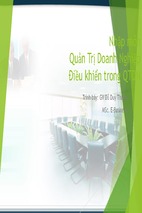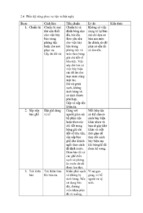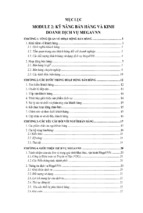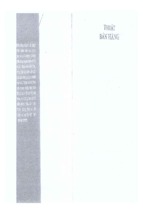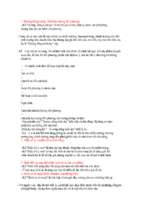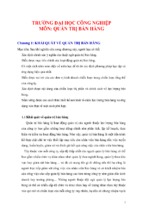The University of Toledo
The University of Toledo Digital Repository
Theses and Dissertations
2013
A contrastive study of the speech act of refusal
:Iranian ESL learners and native English speaking
Americans
Narges Kazemi Gol
The University of Toledo
Follow this and additional works at: http://utdr.utoledo.edu/theses-dissertations
Recommended Citation
Gol, Narges Kazemi, "A contrastive study of the speech act of refusal :Iranian ESL learners and native English speaking Americans"
(2013). Theses and Dissertations. Paper 83.
This Thesis is brought to you for free and open access by The University of Toledo Digital Repository. It has been accepted for inclusion in Theses and
Dissertations by an authorized administrator of The University of Toledo Digital Repository. For more information, please see the repository's About
page.
A Thesis
entitled
A Contrastive Study of the Speech Act of Refusal;
Iranian ESL Learners and Native English Speaking Americans
by
Narges Kazemi Zadeh Gol
Submitted to the Graduate Faculty as partial fulfillment for
The Master of Arts Degree in English with concentration in ESL
__________________________________________
Dr. Douglas W. Coleman, Committee Chair
__________________________________________
Dr. Heather Blakemore, Committee Member
__________________________________________
Dr. Gaby Semaan, Committee Member
__________________________________________
Dr. Patricia R. Komuniecki, Dean
College of Graduate Studies
The University of Toledo
May 2013
Copyright © 2013, Narges Kazemi Zadeh Gol
This document is copyrighted material. Under copyright law, no parts of this document
may be reproduced without the expressed permission of the author.
An Abstract of
A Contrastive Study of the Speech Act of Refusal;
Iranian ESL Learners and Native English Speaking Americans
By
Narges Kazemi Zadeh Gol
Submitted as partial fulfillment of the requirements for
The Master of Arts Degree in English with concentration in ESL
The University of Toledo
May 2013
The current research is a contrastive study of the speech act of refusal. Iranian
ESL learners who have been in the US for at least one year and therefore are to some
extent familiar with the target language culture are compared to native English speaking
(NES) Americans. The data were gathered from 50 Iranian ESL learners and NES
Americans using a role play scenario consisting of requests, suggestions, invitations, and
offers. Data were then coded based on “The classification of illocutionary acts” by Searle
(1976). Statistical analysis reveals that the responses of the two groups are very similar in
the speech act categories used. Finding contrasts with the results of other research that
compare native Persian speakers or Iranian EFL learners with NES Americans, based on
the classification of refusals by Beebe, Takahashi, & Uliss-Weltz (1990) as a unit of
analysis, which suggest a high level of differences in producing the speech act of refusal.
Generally, the perception and production of refusals as dual face-threatening acts in a
second language especially for learners of English as a foreign language (EFL) is a
complex task which requires acquisition of pragmatic competence of the target language
at a higher degree compared to other speech acts. Since it is the first time that Searle’s
iii
classification has been used as a basis of analysis that has more advantages than Beebe et
al.’s classification of refusal (1990), the current research recommends future researchers
to replicate this study with Iranian EFL learners to observe the results and also offers
some solutions to the EFL students and teachers to overcome the negative pragmatic
transfer.
iv
Acknowledgements
First of all, I appreciate my advisor, Dr. Douglas Coleman, for his help, advice,
and patience throughout this research. I appreciate his vast knowledge in the area and his
assistance in all levels of my research. Second, I would like to thank my committee
members, Dr. Heather Blakemore, a true friend, and Dr. Gaby Semaan, for valuable
discussions and their guidance.
This thesis would not have been possible without the continuous love, support,
and encouragement I received from my husband and my parents, especially my Mom
who always supports me with her prayers from the heaven.
v
Table of Contents
Abstract .................................................................................................................................... iii
Acknowledgements .................................................................................................................... v
Table of Contents ...................................................................................................................... vi
List of Tables........................................................................................................................... viii
List of Figures ........................................................................................................................... ix
1 Introduction ............................................................................................................................. 1
1.1 Pragmatic Competence ..................................................................................................... 1
1.2 Speech Acts ..................................................................................................................... 2
1.3 The Speech Act of Refusal ............................................................................................... 3
1.4 Production of Refusal by Language Learners ................................................................... 4
1.4.1 Production of Refusal by Foreign Language Learners................................................ 5
1.4.2 Production of Refusal by Second Language Learners .............................................. 18
1.4.3 Discussion and Summary of the Literature Review .................................................. 20
1.5 The Classification of Refusals by Beebe et al. ................................................................ 22
1.6 The Classification of Illocutionary Acts by Searle .......................................................... 25
1.7 Research Questions ........................................................................................................ 26
2 Methods................................................................................................................................. 27
2.1 Participants .................................................................................................................... 27
vi
2.2 Instruments .................................................................................................................... 28
2.3 Data Coding ................................................................................................................... 33
2.4 Alternative Hypotheses .................................................................................................. 35
3 Results and Discussion .......................................................................................................... 36
3.1 Results ........................................................................................................................... 36
3.2 Discussion ...................................................................................................................... 43
4 Implications, Limitation and Suggestion ................................................................................ 49
4.1 Implications ................................................................................................................... 49
4.2 Limitations and Suggestions for Further Research .......................................................... 51
References ................................................................................................................................ 53
Appendix A .............................................................................................................................. 58
Power Point Slides for the Role Play Scenarios ......................................................................... 58
vii
List of Tables
Table 2.1 The eight situations regarding the Manner of Asking along with the Social
Power and Social Distance of interlocutors……………………………………………...31
Table 3.1 No significant differences between native Persian and native English speakers
in the type of illocutionary act for production of refusals in any of the items (1)(8)………………………………………………………………………….......................37
Table 3.2 No significant differences between native Persian and native English speakers
in the choice of illocutionary act for the initial part of refusals in any of the items (1) (8)………………………………………………………………………………………...39
Table 3.3 No significant differences between native Persian and native English speakers
in the choice of illocutionary act for the final part of refusals in any of the items (1) (8)……………………………………………………………………………………..….40
Table 3.4 No significant differences between native Persian and native English speakers
in the rate of refusal to the four eliciting acts in any of the items (1) - (8)……………....43
viii
List of Figures
Figure 2-1 The First Power Point Slide shows the situation……………………………32
Figure 2-2 The Second Power Point Slide is a suggestion along with the related………....
picture……………………………………………………………………………………32
ix
Chapter 1
1 Introduction
1.1 Pragmatic Competence
It is a noteworthy fact that pragmatics plays a very significant role in the
production and perception of speech. Crystal (1985) as cited in Allami & Naeimi (2011)
defines pragmatics as ‘‘the study of language from the point of view of users, especially
of the choices they make, the constraints they encounter in using language in social
interaction and the effects their use of language has on other participants in the act of
communication’’ (p. 240). One of the main factors in the process of communication is
pragmatic competence. How interlocutors produce and perceive speech in diverse
situations is an important issue as creating inappropriate utterances would cause
misunderstanding and miscommunication (Sahragard & Javanmardi, 2011).
The lack the pragmatic knowledge of the target language by EFL/ESL learners
has been frequently observed (Eslami, 2010). Therefore, their attempt to communicate
successfully with the native speakers of the target language is likely to lead to
intercultural miscommunication.
One of the main reasons for the pragmatic errors,
1
committed by EFL/ESL learners, is negative pragmatic transfer which is the use of
native language pragmatic feature that leads to an inappropriate form in the target
language, and hence miscommunication (Atashaneh & Izadi, 2011). Since, language
learners, in general, do not have enough knowledge of the target language norms; they
are influenced by their native language and transfer their first language pragmatics to the
second language (Sahragard & Javanmardi, 2011).
The pragmatic development for producing and understanding the target language
speech appropriately in various situations is very essential for language learners. Failure
to do so may cause serious communication breakdown and also label language users as
insensitive and rude people (Allami & Naeimi, 2011). We should bear in mind that while
native speakers often ignore phonological, syntactic, and lexical errors, they are sensitive
to pragmatic errors (Hassani, Mardani, & Hossein, 2011).
1.2 Speech Acts
The main source of miscommunication is the inability to perceive and produce
speech acts appropriately in the context by language learners. According to Austin (1962)
as cited in Vaezi (2011), a speech act is a functional unit in communication. It is an act
that speakers implement when making utterances. All languages have almost unique
ways of performing speech acts. Although speech acts are universals, the method used in
performing speech acts is dissimilar in different cultures (Vaezi, 2011).
2
Successful production of the speech acts in a language needs not only the
speaker's linguistic proficiency, but also the pragmatic perception of speech acts.
Performing the speech acts properly in a first and second language is very challenging as
it comes from both linguistic and cultural variations between the languages (Hassani,
Mardani, & Hossein, 2011).
1.3 The Speech Act of Refusal
Refusal is a type of speech act that is projected as a response to another
individual's request, invitation, offer or suggestion which means it is not speakerinitiative (Hassani, Mardani, & Hossein, 2011). Since refusal is a speech act potentially
including a level of rudeness and discourtesy, performing inappropriate refusal strategies
may harm the relationship between interlocutors. Thus, proper perception and production
of refusals requires a certain degree of cultural awareness (Hassani, Mardani, & Hossein,
2011).
Moreover, refusal is a face-threatening act to the listener, because it is not wellmatched with his or her expectations. Thus, to avoid appearing offensive or impolite,
non-native speakers often overuse indirect strategies that could be misinterpreted by
native speakers (Al-Eryani, 2007). According to Al-Kahtani (2005), saying no is difficult
for non-native speakers of a language. How one says 'no' is more important in many
societies than the answer itself. Therefore, sending and receiving a message of 'no' is a
3
task that needs special skills. The speaker must know when to use the appropriate form
and its function depending on his and her interlocutor's cultural-linguistic values.
Since, failure to refuse appropriately may risk the interlocutors’ relations; refusals
have variety of strategies to avoid offending. However, sociocultural appropriateness of
these strategies differs in languages and cultures. Rubin (1981) as cited in Keshavarz,
Eslami, & Ghahraman (2006) states that for language learners with limitations in
linguistic as well as sociocultural norms of the target language, performing refusal
appropriately necessitates a higher level of pragmatic competence than other speech acts.
Thus, pragmatic transfer from the first to the second language is more likely to occur in
uttering a complicated and face threatening speech act like refusal (Beebe, Takahashi, &
Uliss-Weltz, 1990).
1.4 Production of Refusal by Language Learners
In the background review, I have tried to show the previous research studies
regarding the production of refusal by Foreign Language (FL) learners and particularly,
English as a Foreign Language (EFL) learners, which refers to students who learn
English as a foreign language in their home country. Likewise, in the next section, the
previous research studies concerning the production of refusal by Second Language (SL)
learners and mainly, English as Second Language (ESL) learners, people who learn a
second language out of their country and in the target language environment, have been
4
investigated. These studies in the two following sections have performed worldwide and
particularly in Iran.
1.4.1 Production of Refusal by Foreign Language Learners
A number of studies have made contributions to the general study of the speech
act of refusal worldwide, specially the production of refusal by people who learn a
foreign language out of the target language environment, and comparing the results by
native speakers. They generally concluded that these learners have a lack of the
pragmatic knowledge necessary to produce such a face-threatening act. Consequently,
language learners use the norms and pragmatic features of their mother tongues in the
production of refusals which leads to an improper form in the target language, and
therefore miscommunication.
A major study carried out by Beebe, Takahashi, & Uliss-Weltz (1990) compared
the refusals produced by native speakers of Japanese and native speakers of English,
using a Discourse Completion Test (DCT). (DCT used in linguistics and pragmatics is a
one-sided role play including a situational prompt which a participant read to produce the
responses of another participant to elicit particular speech acts.) The participants of the
study were 20 Japanese speaking in Japanese, 20 Japanese-speaking in English, and 20
Americans speaking in English with the aim of investigating pragmatic knowledge in
refusals to a higher-, equal-, and lower-status interlocutors. Findings showed that
5
Japanese speakers of English and native speakers differ in three areas: the order of the
semantic formula, the frequency of the formula, and the content of the utterances. For
example, Americans inclined to offer specific details when giving explanations, while the
Japanese subjects often produced explanations that might be interpreted as ambiguous.
The results also verified the importance of status in the refusal strategies selected by the
respondents. Americans, in refusing requests usually employed a form of indirect
communication. On the other hand, the Japanese used more direct strategies if the
interlocutor was a lower-status person. Status was also an important factor in refusing
invitations. As with requests, the Japanese respondents were more likely to use direct
strategies in refusing from someone of lower status. However, in refusing invitations
from persons of higher status, the Japanese were more polite, using more indirect
strategies than in addressing persons of lower status. However, Americans used similar
indirect strategies in refusing invitations. With status equals, they often ended the refusal
with a ‘‘thank you’’. Generally speaking, the difference was that Japanese learners were
mostly conscious of the status difference in interactions, while the Americans denied
such differences.
Al-Eryani (2007) has investigated a pragmatic study of the speech act of refusal.
The refusals of 20 Yemeni learners of English to six different situations were compared
to those of Yemeni Arabic native speakers and American English native speakers. The
data collected from DCT and were categorized according to the classification of refusal
by Beebe, Takahashi, & Uliss-Weltz, 1990 (Beebe’s classification has been described at
the end of Chapter 1). Results indicate that although a similar range of refusal strategies
6
were available to the two language groups, cross-cultural variation existed in the
frequency and content of communicative formulas used by each language group in
relation to the status of interlocutors (higher, equal, or lower) and eliciting acts i.e.,
requests, invitations, offers, and suggestions). For instance, Yemeni Arabic native
speakers tended to be less direct in their refusals by offering “reasons” or “explanations”.
Due to their high proficiency in English, Yemeni learners of English showed evidence of
pragmatic competence of the target language in constructing their refusal in three areas:
First, the order in which communicative formulas for refusing were used for instance:
Yemeni Arabic native speakers used excuses in the first and the second positions of the
semantic formulas; the Yemeni EFL learners used excuses in all positions, whereas
American English native speakers used excuses only in the third position. Second, the
frequency of semantic formula which was occurred in their refusal strategies according to
their social status in the situation, higher, equal, or lower and third the content of
communicative formulas according to the situation itself, a request, an offer, an invitation
or a suggestion. However, EFL learners displayed some of their native language norms
and cultural background while refusing in the target language.
Genc & Tekyildiz (2009) explore the ways in which Turkish learners of English
use the speech act of refusal and to find out if regional variety affects the kind of refusal
strategies used. Data were collected through a DCT in order to investigate the similarities
and differences between the use of refusal strategies by Turkish learners of English in
urban areas and rural areas as well as native speakers of English in urban areas and rural
areas. 101 Turkish EFL learners and 50 native speakers of English participated in this
7
study. Results showed that subjects in all groups used the refusal strategies in a similar
way. In addition, the status of interlocutor was observed as an important factor in strategy
choice for participants. All the subjects seem to refuse similarly in using direct and
indirect strategies in their responses to the different social status interlocutors.
Wannaruk (2008) investigates similarities and differences between refusals by
American native English speaking and Thai and to find out if there is any pragmatic
transfer from the first to the second language by Thai EFL learners while making refusals
in English. The participants of the study include Thai and American native speakers and
EFL learners. All participants are graduate students. The data were collected by DCT.
EFL data for refusals were compared with similar data gathered from native speakers of
American English and Thai. Results reveal that generally all three groups share most of
the refusal strategies; however the pragmatic transfer exist in the choice and content of
refusal strategies. Regarding language proficiency, EFL learners with lower English
proficiency translate in a higher degree from L1 to L2 because of their lack of target
language pragmatic knowledge.
Qadoury Abed (2011) deals with pragmatic transfer of Iraqi EFL learners' refusal
strategies compared with Iraqi native speakers of Arabic and American native speakers of
English. The DCT consisted of 12 situations including requests, offers, suggestions, and
invitations with higher, equal, and lower status interlocutors. Data analyzed according to
frequency types of refusal strategies and interlocutor's social status. Findings reveal that
the frequency of use of refusals by Iraqi EFL leaners is different from that of Americans,
8
however they share some similarities. Iraqi EFL learners prefer to express refusals with
caution by using more statements of reason, regret, wish and refusal adjuncts in their
responses than Americans. Americans are more sensitive to their interlocutor's higher and
equal status, whereas Iraqi EFL learners to lower status.
Félix-Brasdefer (2008) examines the cognitive processes and perceptions of
learners of Spanish when refusing invitations from a person of equal and higher status in
Spanish. Twenty male native speakers (NSs) of US English who were advanced learners
of Spanish as a foreign language participated in two refusal interactions with two NSs of
Spanish. The data were collected by a role-play task. Findings revealed that the data were
contributory in gathering relevant information about learners' cognitive processes
concerning: (1) cognition (attention during the planning and production of a refusal to
politeness, discourse, grammar and vocabulary; (2) the selection of the language of
thought (English and Spanish) for pragmatic transfer; and (3) the perception of insistence
after refusing an invitation. The study aims at informing researchers and teachers of the
kinds of language-learning and language-use strategies that learners use to communicate
in the target language.
Kwon (2004) investigates refusals of 40 Korean speakers in Korea and 37
American English speakers in America. Data were collected by a DCT taken from Beebe,
Takahashi, and Uliss-Weltz (1990). Data were analyzed based on semantic formula and
categorized according to the classification of refusals by Beebe et al. (1990). Results
showed that although a similar range of refusal strategies were available to the two
9
language groups, cross-cultural variation exists in the frequency and content of semantic
formulas used by each language group in relation to the status of interlocutors (higher,
equal, lower status) and eliciting acts (requests, invitations, offers, suggestions). For
instance, Korean speakers hesitated more and used direct refusal much less frequently
than did English speakers. In addition, Korean speakers frequently paused and apologized
before refusing, while English speakers often expressed positive opinions and gratitude
for a proposed action. Furthermore, Korean speakers tended to take a more mitigating
approach in refusing a higher status person as compared to other status types, whereas
English speakers did not seem to be sensitive to different status in their refusals. The
author concluded that these differences in Korean and English refusals cause pragmatic
failure when Korean learners of English use their native language cultural norms in
production of refusal in interacting with native English speakers.
Al-Issa (2003) investigates pragmatic transfer in the performance of the speech
act of refusal by Jordanian EFL learners. Two research questions of this study are:
1) If pragmatic transfer from Arabic to English would exist in production of refusal by
Jordanian EFL learners in English.
2) The factors that would motivate this transfer.
In order to find pragmatic transfer, refusal data, using a DCT, were elicited from 150
participants divided equally into three groups: the target group, consisting of Jordanian
advanced EFL learners, the reference groups, Jordanian native speakers of Arabic, and
American native speakers of English. Data were analyzed by using semantic formulas as
units of analysis. Regarding the motivating factors behind pragmatic transfer, interviews
10
- Xem thêm -




